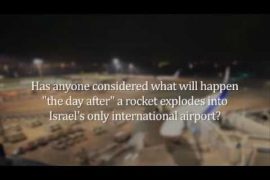1) At the Tower Jamie Palmer meticulously documents an important phenomenon in an article titled “The Pro-Palestinian Left is Tearing Itself Apart Over Syria“.
“This silence has confounded the activists and writers of the Syrian revolution. If the anti-war Left was moved to outrage by air-strikes in Gaza and Baghdad, why was it unmoved by the sight of Syrian bodies and buildings being smashed to atoms in Aleppo and Homs?
The Syrian revolutionaries’ confusion gave way to frustration that in turn gave way to anger, particularly when they noticed that what did galvanize protests was not a pitiless dictator smashing his fiefdom to smithereens, but any suggestion that the West might do something to stop him. When the Assad regime fired sarin gas into the Damascus suburb of Ghouta on August 21, 2013, killing hundreds of civilians, it looked for a moment as if the West, led by America, might finally intervene. It was only then that the anti-war movement lurched back to life.”
2) At the Weekly Standard, Lee Smith gives his take on the recent presidential election in Lebanon.
“Many observers believe this election signifies that Lebanon has now come fully under Hezbollah management. But this has been the case already for years. Hezbollah has controlled key Lebanese institutions, especially the security and military portfolios, since the Syrian withdrawal from Lebanon in 2005. Hezbollah’s instigation of war against Israel in 2006 was further proof that it had final say over the country’s foreign policy. That Iran’s praetorian guard on the eastern Mediterranean has now placed some 150,000 rockets and missiles aimed at Israel throughout Lebanon reinforces the fact that Hezbollah alone has the power to make life-and-death decisions of state, affecting the fate of millions of Lebanese, whether they back the group or oppose it. What the election shows is that Hezbollah has finally replicated the system of its patron, the Islamic Republic of Iran.”
3) Khaled Abu Toameh takes a look at the likely outcomes of the scheduled Fatah conference.
“Barring last-minute changes, the Palestinian Fatah faction, which is headed by Palestinian Authority (PA) President Mahmoud Abbas, is scheduled to hold its Seventh Conference in Ramallah on November 29. This will be the first gathering of its kind since August 2009.
The upcoming conference coincides with mounting tensions in Fatah, the result of internal bickering and growing discontent with Abbas’s autocratic rule. Some 1,300 delegates to the conference will be asked to vote for two of Fatah’s key decision-making bodies — the 23-member Central Committee and the 132-member Revolutionary Council.
Palestinian political analysts predict that the Fatah conference will deepen divisions among the faction’s rival camps, particularly in the wake of Abbas’s continued efforts to eliminate his critics. Abbas, they say, decided to convene the parley in a bid to tighten his grip on Fatah and block the emergence of new leaders.”
4) At the Times of Israel, Lyn Julius discusses one aspect of a BBC programme broadcast last weekend.
“The great historian Bernard Lewis says that the myth of Muslim tolerance is one of the great myths propagated by 19th century Jewish historians who wanted to embarrass the west into giving European Jews greater civil rights. Belief in the myth of Muslim tolerance was a result, more than a cause, of Jewish sympathy for Islam. “The myth was invented by Jews in nineteenth-century Europe as a reproach to Christians – and taken up by Muslims in our own time as a reproach to Jews,” he writes.”





